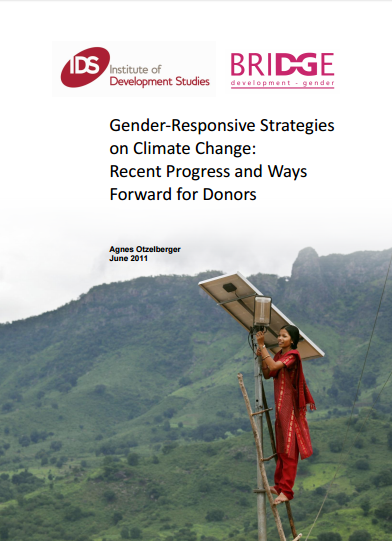New York, July 22nd, 2011— Gender equality is an important pre-condition for successful climate change adaptation, and transition to low-carbon alternatives in developing countries. In order for this transition to be effective, climate change adaptation and low-carbon efforts need to be gender-responsive taking into account the specific needs of men and women and the gendered inequalities that may compound the impacts of climate change.
Please find below a recent paper by Agnes Otzelberger of CARE. “Gender-responsive strategies on climate change: Progress and ways forward for donors”
This paper focuses on the role of donors in this process, and is targeted at those working on climate change in donor agencies. It outlines a rationale for improved integration of gender and proposes key principles which should premise climate change policies and programmes. Some of the principles outlined include the ideas that neither the impacts nor responses to climate change are ever gender-neutral, addressing gender is about addressing unequal power relationships between women and men, and gender relations are context-specific, and change over time. The paper also offers recommendations for donors which include:
- taking a stronger lead on gender equality in the climate change arena by promoting gender-inclusive policy dialogue
- creating enabling organisational environments for effective gender mainstreaming by addressing ‘mainstreaming fatigue’ and providing gender and climate change tools covering the entire project or programme cycle
- filling knowledge and best practice gaps in participatory ways that capture men’s, women’s and young people’s ideas and knowledge, particularly in areas where the gender dimensions of climate change impacts and responses are not immediately obvious, such as transport and infrastructure.



